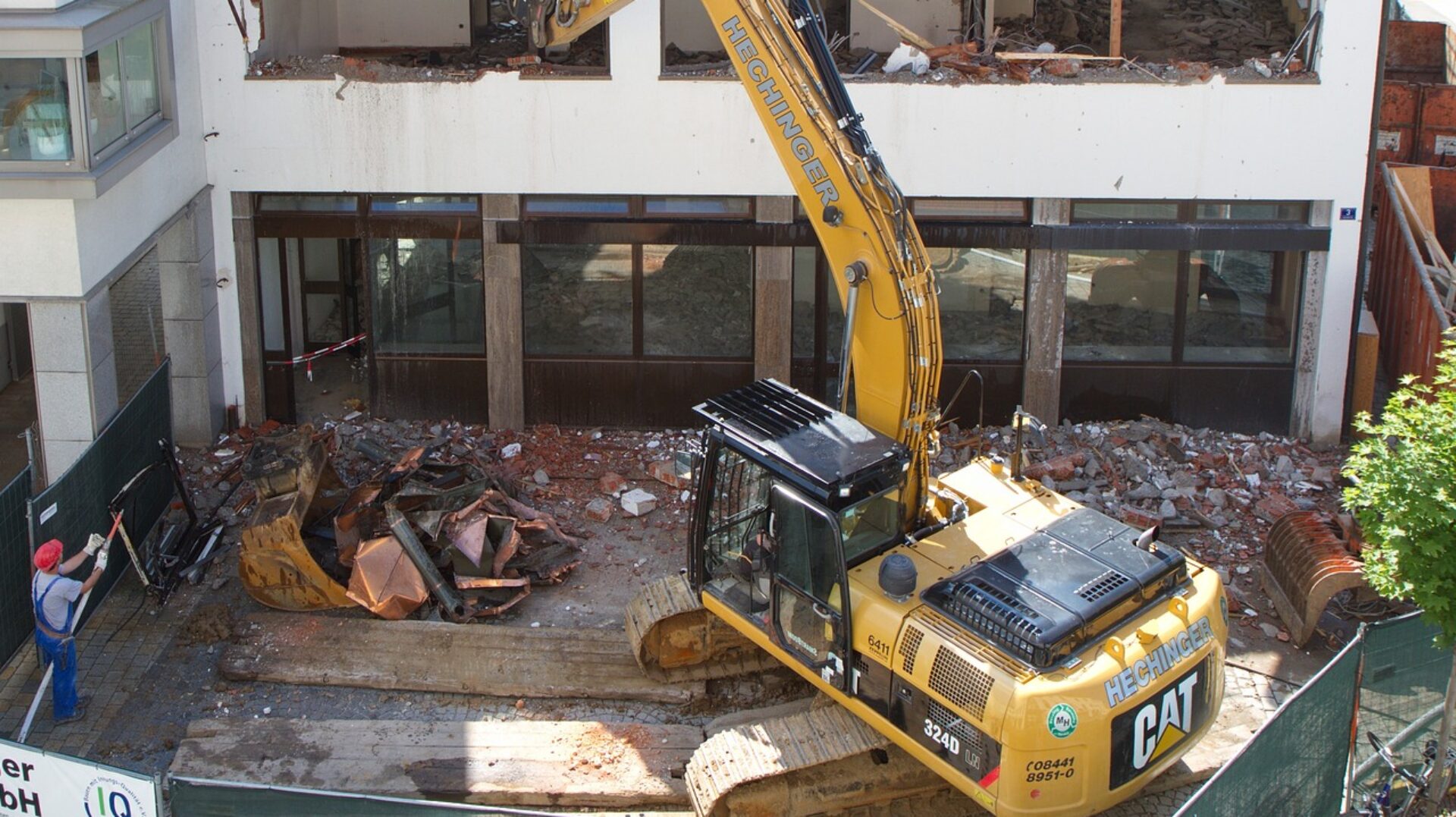What is the Difference Between Commercial and Industrial Demolition?
Understanding the distinctions between commercial and industrial demolition is crucial for project planning and execution. Each type targets different structures and involves unique challenges, methods, and regulatory considerations. Here’s a detailed look at how commercial and industrial demolition differ.
Commercial Demolition
Commercial demolition refers to the dismantling of structures used for business purposes. This includes a variety of buildings such as retail stores, office buildings, hotels, and educational facilities.
Key Aspects:
- Location and Complexity: These projects often take place in densely populated urban areas. Planning must consider minimal disruption to the surrounding community.
- Safety and Compliance: Adhering to safety standards is critical, especially in environments previously accessible to the public. Compliance with local regulations is strictly monitored.
- Material Handling: Commercial buildings contain a diverse mix of materials. Efficient waste management involves recycling or reusing materials like glass and metals.
Industrial Demolition
Industrial demolition involves larger scale projects that focus on dismantling sites used for manufacturing and processing. This category includes factories, warehouses, power plants, and specialised facilities, such as chemical plants.
Key Aspects:
- Heavy Equipment and Hazards: These sites often contain large machinery and potentially hazardous materials requiring specialised handling and disposal.
- Structural Considerations: Buildings in industrial demolition are robust, built with heavy-duty materials such as reinforced concrete and steel, necessitating powerful demolition equipment.
- Environmental Concerns: The environmental impact is a significant focus, with stringent protocols for managing and disposing of industrial waste.
Methodologies Employed
Both demolition types may use similar techniques, such as mechanical demolition or controlled explosions. However, the choice largely depends on the structure’s complexity, location, and the materials involved.
- Commercial Demolition may involve selective demolition to integrate new developments seamlessly into existing urban fabric.
- Industrial Demolition might necessitate comprehensive site clearance and remediation, especially if the site will be repurposed or developed for different uses.
Choosing between commercial and industrial demolition depends primarily on the original function of the building, the nature of its construction, and the intended future use of the site. Each requires tailored strategies for efficient, safe, and compliant execution.
Commercial and Industrial Demolition in Liverpool
Are you facing a demolition challenge and unsure whether it falls under commercial or industrial? Contact Demolition Liverpool today. Our experts are ready to guide you through the complexities of your project, ensuring that you adhere to all safety and environmental standards. Reach out for a consultation to learn more about our services and how we can help make your demolition project a success.
